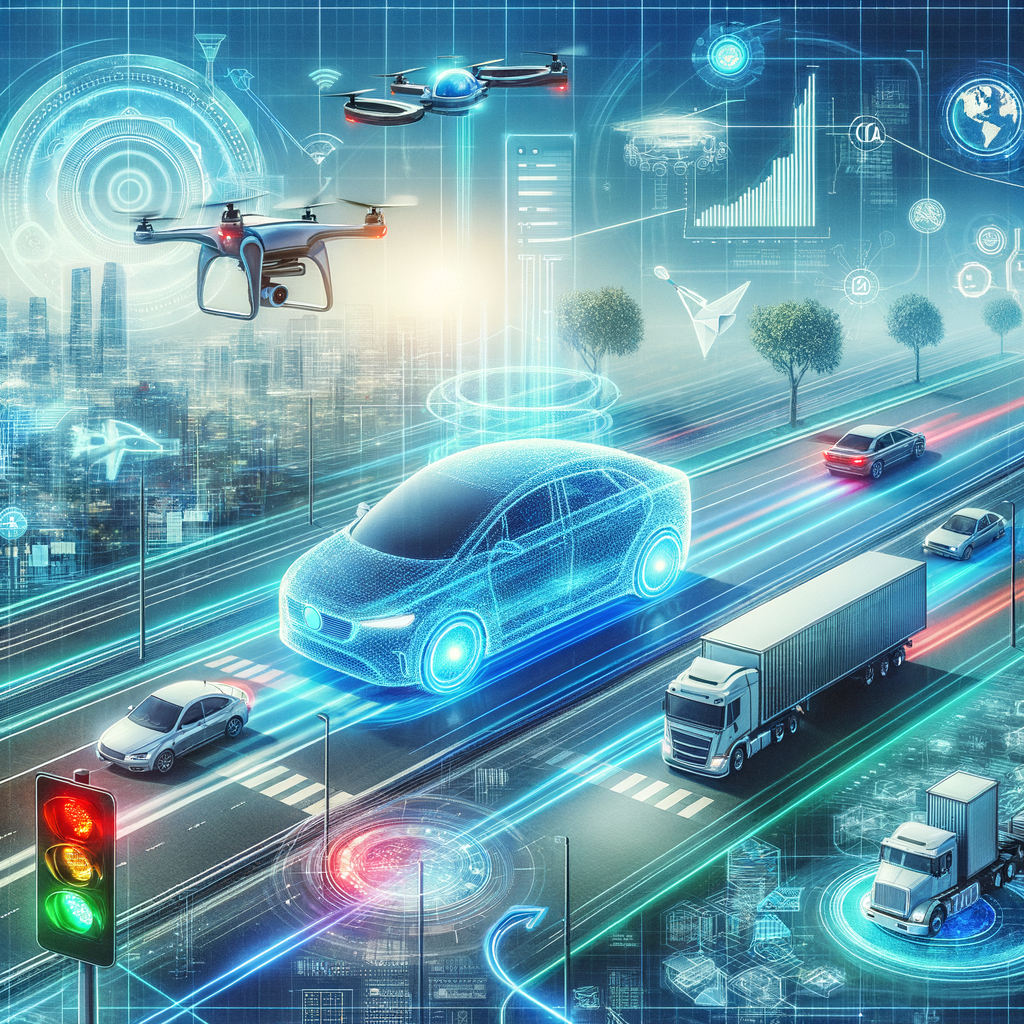The transportation landscape is undergoing a radical transformation, driven by the incredible potential of artificial intelligence! Imagine a world where traffic flows seamlessly, vehicles communicate instantaneously, and transportation becomes smarter, safer, and more efficient. According to recent studies, the global AI in transportation market is projected to reach $3.5 billion by 2025, signaling a massive technological revolution.
As we stand on the brink of a mobility breakthrough, AI is not just changing how we move—it’s reimagining the entire concept of transportation.
AI’s Role in Modern Transportation
Defining AI in Transportation Landscape
Artificial Intelligence has become an integral force reshaping how we conceptualize and implement transportation technologies. From urban transit systems to long-haul logistics, AI is transforming traditional mobility frameworks by introducing unprecedented levels of intelligence and responsiveness.
Technological Advancements Driving Innovation
Modern transportation is experiencing a revolutionary shift, powered by sophisticated machine learning algorithms and advanced sensor technologies. These innovations are not just incremental improvements but fundamental reimaginings of mobility infrastructure.
Market Growth and Emerging Trends
The transportation AI market is projected to experience exponential growth, with global investments indicating a strong commitment to technological transformation across industries.
Autonomous Vehicle Technologies
Machine Learning in Self-Driving Systems
Machine learning algorithms enable vehicles to process complex environmental data with remarkable precision. By analyzing millions of driving scenarios, AI systems can make split-second decisions that potentially surpass human reaction capabilities.
Sensor Fusion and Real-Time Decision Making
Cutting-edge autonomous vehicles integrate multiple sensor technologies – LiDAR, radar, cameras – creating a comprehensive environmental understanding. These systems can predict and respond to potential hazards faster than human drivers.
Safety Improvements and Accident Prevention
By leveraging predictive analytics, AI-driven transportation systems are dramatically reducing accident probabilities, transforming road safety paradigms.
Smart Traffic Management Systems
AI-Powered Traffic Flow Optimization
Intelligent traffic systems can dynamically adjust signal timings, reroute vehicles, and manage urban mobility with unprecedented efficiency. Cities like Singapore are already implementing such advanced traffic management solutions.
Predictive Congestion Management
Using historical and real-time data, AI algorithms can forecast and mitigate traffic congestion before it becomes critical, saving time and reducing environmental impact.
Sustainable Transportation Solutions
Energy Efficiency Through Intelligent Algorithms
AI is playing a crucial role in optimizing energy consumption across transportation networks. Electric vehicles with AI-managed charging and routing can significantly reduce overall carbon footprints.
Emissions Reduction Strategies
By integrating autonomous and electric vehicle technologies, transportation systems can achieve substantial reductions in greenhouse gas emissions.
Future Challenges and Opportunities
Ethical Considerations in AI Transportation
As autonomous technologies advance, critical questions emerge about algorithmic decision-making, especially in complex moral scenarios involving potential accidents.
Infrastructure and Societal Adaptations
Successful AI transportation integration will require comprehensive infrastructure upgrades and significant shifts in regulatory frameworks and social perceptions.
Potential Economic and Social Transformations
The widespread adoption of AI in transportation promises to revolutionize employment patterns, urban planning, and individual mobility experiences.
Conclusion
The future of transportation is not just about moving from point A to point B—it’s about creating intelligent, responsive, and sustainable mobility ecosystems. As AI continues to evolve, we can expect transportation to become safer, more efficient, and increasingly personalized.
Are we ready to embrace this transformative journey? The road ahead is exciting, and AI is driving us forward!

